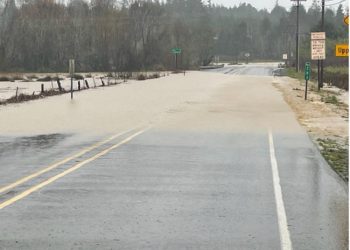Astoria, OR – A recent status report from the Oregon Kelp Alliance has painted a bleak picture of the state’s kelp forests, revealing a dramatic decline in their size over the past decade. According to the report, nearly 900 acres of bull kelp forest have vanished from the Oregon Coast since 2010, leaving only about one-third of the once-thriving kelp ecosystems intact.
Kelp forests, often referred to as “underwater rainforests,” are vital to the health of coastal ecosystems. These dense, towering forests provide critical habitats for a wide variety of marine life, including fish, invertebrates, and mammals. They also act as carbon sinks, helping mitigate the impacts of climate change by absorbing excess carbon dioxide from the atmosphere.
The Oregon Kelp Alliance’s report highlights how these kelp ecosystems are under increasing pressure from a combination of environmental stressors, including rising ocean temperatures, ocean acidification, and the effects of overfishing. These factors, coupled with human activities like coastal development and pollution, have left Oregon’s kelp forests struggling to survive.
“The loss of kelp forests is a significant blow to the health of our oceans and coastal communities,” said a spokesperson from the Oregon Kelp Alliance. “These ecosystems are not only crucial for marine biodiversity, but they also support local economies, particularly those dependent on fisheries and eco-tourism.”
The decline of kelp forests is not just an environmental concern but an economic one as well. Kelp forests provide critical habitat for many commercially valuable fish species, such as rockfish and salmon, making their preservation essential to sustaining both marine biodiversity and the livelihoods of those who depend on the ocean for their income.
The report also calls for immediate action to protect and restore the remaining kelp forests along the Oregon Coast. It suggests that efforts to combat climate change, reduce pollution, and protect coastal habitats from further degradation are critical to reversing the decline of these essential ecosystems.
As climate change continues to pose a growing threat to marine environments, the future of Oregon’s kelp forests hangs in the balance. Without concerted efforts to protect these vital ecosystems, the state’s kelp forests may continue to dwindle, leaving behind an ocean ecosystem that is significantly less diverse and resilient than it once was.













